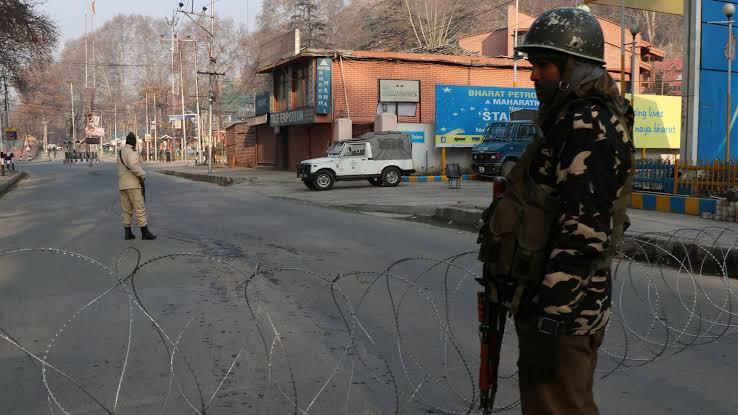Speculations of Name Changing in Kashmir a 'Cultural Crackdown'

On October 31, the formal bifurcation process of the state of Jammu and Kashmir into the Union Territories of Jammu and Kashmir and Ladakh was initiated. While the new governors have been sworn in and administrative nitty-gritties are being pondered upon, many are concerned about the fundamental changes that the bifurcation process will bring to the identity of the erstwhile state.
Post the bifurcation process, the radio stations in Jammu, Srinagar and Leh were renamed ‘All India Radio Jammu’; ‘All India Radio Srinagar’; and ‘All India Radio Leh’. All India Radio’s Kashmir stations, at Srinagar and Jammu, had until now been called ‘Radio Kashmir’, which had been a part of the AIR since the 1950s.
In the same week, Bharatiya Janata Party’s (BJP’s) national secretary, Tarun Chugh, indicated that as Jammu and Kashmir and Ladakh will get Union Territory status on October 31, “the best thing is that now Urdu will no longer be the first and official language of the state.” He added, “Hindi will be the first and official language of the state.” Since the abrogation of Article 370 from Jammu and Kashmir, there were wide speculations over New Delhi’s policies towards the volatile region. Earlier there were reports that Hindi might replace Urdu as the official language and now there are reports which claim that the names of prominent stadiums and streets may be changed.
Also read: Bifurcation of J&K Begins Tomorrow; Petitions Against Abrogation Lie Pending With SC
The Sher-i-Kashmir cricket stadium in Srinagar, named after National Conference (NC) founder Sheikh Abdullah, would reportedly be renamed after the Iron Man of India and first deputy prime minister, Sardar Vallabhbhai Patel. According to media reports, preparations for the change of nomenclature are going on and the formal announcement is likely to be made on December 15 – which marks the death anniversary of Sardar Patel. Reports also suggest that the names of some streets and roads in the city centre around Lal Chowk would also be renamed after known personalities of India.
While many in India have lauded the name changing, in the Valley, the move is being viewed as an exercise to target the cultural values of the region in a bid to impose the ‘Indian ethos’ on the region.
Speaking to NewsClick, Shahid Choudhary, current deputy commissioner of J&K, denied the initiation of name changing activities labelling them as “unconfirmed reports”. He added, “No official statement has come out yet.” However, many in the state are expecting the changes to be announced in the month of December. Amid this, the opposition has reacted strongly to the speculations with the National Conference terming this move as “despicable”.
Hasnain Masood, an MP from NC, said, “What is culture? It's our language, our buildings and even our names. By attempting to change this, the BJP government at the Centre is initiating a cultural crackdown on us. It is deeply impacting the psyche of the people of the state. You are essentially inflicting hurt on the sentiments of the people. The bigger question we need to be asking is what is this going to achieve? You widen the gap with the people who are already hurt.”
Also watch: The Truth of Bifurcation of Jammu and Kashmir
The same stance has been taken by the Congress and the People’s Democratic Party in the Valley, whose leadership is still under lockdown. Speaking to NewsClick, Umer Kukru of Congress said, “The people of the state are taking these speculations very seriously. Moves like this lead to a lot of distrust specially towards the Indian State. The general sentiment on the ground is that of hurt and anger, as this is a direct attack on the identity and the culture of the people. This is pushing people towards the path of hatred.”
Articles 370 and 35A which granted the state a special status and powers was read down by the Indian government on August 5, and the same day as the Jammu and Kashmir Reorganisation Act 2019 was passed. The erstwhile state is now administered by Lieutenant General G.C. Murmu.
With the bifurcation, the Legislative Assembly can now make laws for any part of the Union Territory of J&K. These laws are related to any matters specified in the State List of the Constitution, except “Police” and “Public Order”, and any matter in the Concurrent List applicable to Union Territories. Further, Parliament will have the power to make laws in relation to any matter for the Union Territory of Jammu and Kashmir like the other UTs of India. Under the Reorganisation Act, the number of seats in the Legislative Assembly of the UT of J&K has been increased from 107 to 114.
Ladakh will not have an Assembly and will be directly governed by the Union Home Ministry through the LG. Some seats will be reserved for Scheduled Castes and Scheduled Tribes in proportion to their population in the UT of J&K. In addition to this, the LG may nominate two women members if they are not adequately represented.
The High Court of J&K will be common for both UTs. In addition, there would be an Advocate General to provide legal advice to the government of the J&K. As far as laws are concerned, after the abolition of Article 370, 153 state laws have also been repealed. This includes lifting of prohibitions on lease of land to persons who are not permanent residents of J&K.
Also watch: Nida Nawaz: A Bridge of Poetry Between Kashmir and Rest of the Country
Get the latest reports & analysis with people's perspective on Protests, movements & deep analytical videos, discussions of the current affairs in your Telegram app. Subscribe to NewsClick's Telegram channel & get Real-Time updates on stories, as they get published on our website.
























